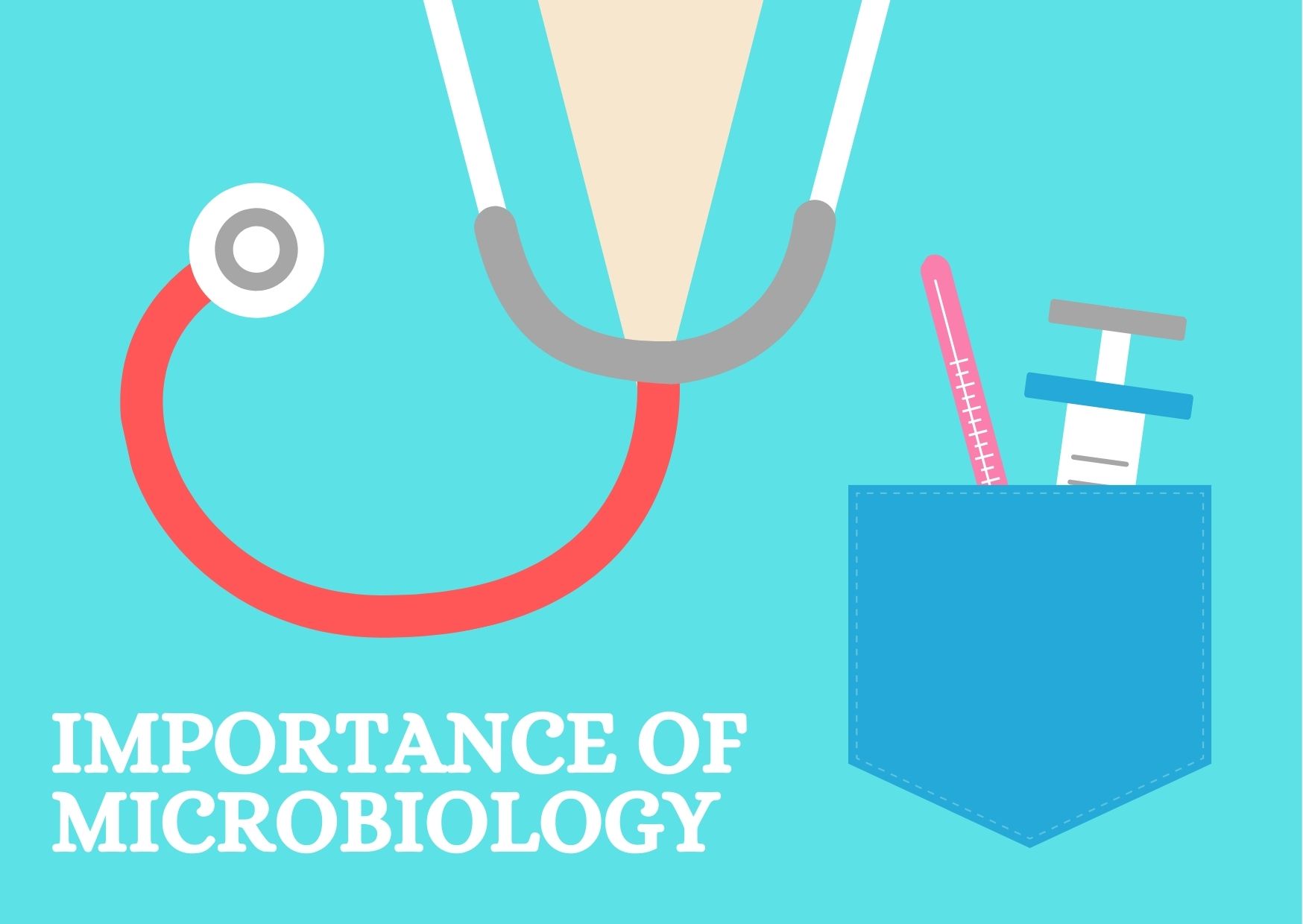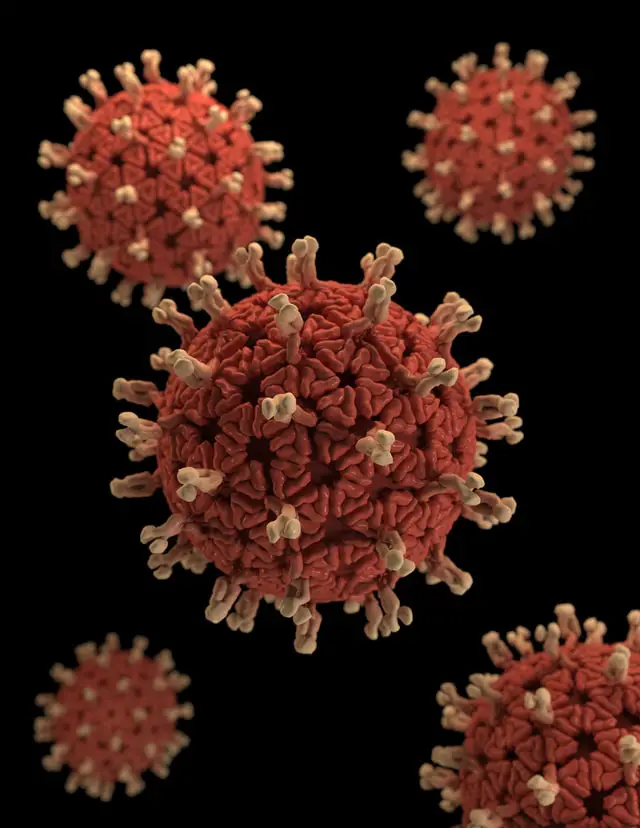Importance of microbiology: in the food industry, in pharmacy, in agriculture, in dentistry, in everyday life. Life on Earth would not exist without microbes.
Biotechnology and biodegradation are two of the most versatile biological processes, and they play an important role in numerous biochemical processes such as biodegradation, biodeterioration, food spoilage, epidemiology, and biotechnology.

Utilizing microorganisms in a variety of regulated conditions, microbiologists can harness the power of microbes to do good in fields such as healthcare, food production, and agriculture.
Some of the most significant scientific advances in history have been made by microbiologists. Edward Jenner was the man responsible for creating the first smallpox vaccine. Anthrax, cholera, and tuberculosis were all discovered by Robert Koch. Alexander Fleming discovered penicillin.
Helicobacter pylori has recently been linked to stomach ulcers by Barry Marshall. Scientists working on microbiology are pushing the boundaries of science and saving lives at the same time.
According to the Microbiology Society, the field has the following significance:
It remains vital that microbiology research contribute to meeting many of the world’s contemporary objectives and concerns, such as eliminating food, water, and energy shortages for a healthy population on an inhabitable planet.” Microbiology research will assist in addressing questions such as, “How diverse is life on Earth?” Does life exist elsewhere in the universe?’ and ‘Does life exist elsewhere in the Universe?’
Microbiologists are involved in many important ongoing tasks, such as improving agricultural sustainability, cleaning up waste, making biofuels, and producing food and drink.
In addition to creating life saving pharmaceuticals that have a positive impact on millions of people around the world, microbiologists are also addressing the threat of antibiotic-resistant bacteria in the world, as well as pandemics and world pandemics in progress.
In Food and Agriculture Industry
Our food can also be made safer by microbiology. As part of microbiology, microorganisms discovered in food are identified. Gain a better understanding of these bacteria to help scientists discover strategies to prevent food from rotting.
Good bacteria are used by scientists to combat dangerous germs and prevent food contamination. Listed below are some microbiology benefits in the food and agriculture industries.
- In order to assist the Food and Drug Administration in identifying products that might be harmful to human health, microbiologists who specialize in bacteria found in food can provide information on these products. Also investigated are food poisoning outbreaks, to find out what causes them and prevent them in the future.
- We are also provided with clean drinking water through microbiology. Microorganisms are vital to water purification, as they are involved in the treatment of sewage. The bacteria present in sewage improve water quality by breaking down organic waste products before they are released back into the environment.
- Bacteria play an important role in soil, according to microbiologists. Various researchers study plant diseases and pests, developing methods for combating them or studying microorganisms to control insect pests and weeds. There are also researchers researching animals that suffer from parasites that cause disease. Furthermore, microbiology can help farmers maximise the number of nitrates in their fields by optimizing nitrate levels.
- Natural insecticides can be discovered with their help. The use of microorganisms to combat pests on crops is relatively common, such as bacteria and viruses. Because of their natural characteristics, they are called natural pesticides. There are pesticides and insecticides that are specific to pests or insects and that do not harm humans, animals, or plants.
- Provide assistance with the natural manures. By fixing nitrogen in the soil and increasing the soil’s water retention capacity, microorganisms, such as bacteria and algae, are produced to help improve soil fertility. The result is that they maintain an environment conducive to plant growth by keeping soil microbiology healthy. Planting leguminous plants in rotation improves soil fertility through the use of microorganisms in the roots.
- Decomposition of waste is facilitated by agricultural microbiology. Microbes in the soil breakdown the residues of synthetic pesticides and other hazardous materials, thus protecting the farm from accumulating toxins.
- The food industry makes use of microbiology to accomplish this by using antibacterial agents such as nisin to enhance shelf life by suppressing bacterial growth in cheese, meats, and beverages.
In Pharmacy: Importance of microbiology

Microbiology has made the greatest contribution to the pharmaceutical industry through the invention of antibiotics. Modern genetic alterations have allowed for more potent antibiotics to be developed. Over time, antibiotics were originally derived from microbial metabolism.
The study of microorganisms also contributes significantly to drug development in the form of vaccines. Many of the vaccines against bacterial illnesses require the development of vast numbers of bacteria. Steroid hormones can also be produced by bacteria.
Pharmaceutical quality control and medication development are two areas where microbiology plays an important role. Medications, injectables, eye drops, nasal solutions, and inhalation products are guarded against contamination with microorganisms following pharmacopeial rules.
Microbes can benefit us in ways beyond their ability to cause illness, such as how they work in conjunction with the “good bacteria” lactobacilli. Antimicrobial drugs can be discovered by pharmacists once they have a good understanding of microbiology and the mechanisms of human cells. This allows them to combat an increasing number of communicable diseases.
In Dentistry
When crooked teeth are polished and nagging toothaches are treated, a dentist’s office is the place to go. However, understanding the bacteria that dwell in the mouth is an important element of dentistry. Mouth cavities contain the highest diversity of microbes out of all body parts, with more than a hundred types of bacteria living there.
Microbiology plays a significant role in dentistry. Throughout, it gives a complete overview of how bacteria within the mouth cavity interact with each other, with the host, and with the host’s importance in systemic diseases. It also provides useful information on using antibiotics, sanitizing and sterilizing, and disinfecting surfaces.
Bacteria are counted using microbiology tests to determine plaque levels and biofilm concentrations. An early detection of gum disease can prevent it from spreading and threatening the stability and health of the teeth and gums.
Most of the illnesses that occur in the oral cavity are caused by bacteria (and may also be the causes of most of the disorders elsewhere in the body). Periodontitis and dental caries are the two most common illnesses in the mouth.
The understanding of the underlying causes of these disorders (their origin, course, diagnosis, and treatment) requires some knowledge of the nuances that contribute to them. Traditionally, this has been the view of pathologists.
In the modern field of dentistry, a great deal is made about treating these and other conditions (including candidiasis) as ecological disasters affected by a disruption in the microbial balance. To appreciate the ecology of the oral microbiota, as well as how it is affected by a wide range of factors, a good understanding of microbiology is imperative.
What kind of treatment plan can be developed if you don’t have any experience in microbiology? Think about if you had acute apical periodontitis, which was causing you extreme pain and a fever, and there was a chance it could spread and enlarge your entire neck.
Antibiotics are most likely prescribed for the unfortunate patient because this is usually caused by bacteria. How can I choose the right antibiotic? Understanding the microbiology of the specific disease state is the first step towards selecting a good treatment.
In Everyday life
The field of microbiology is used and plays an important role in our daily lives. Described here are some of the most interesting aspects of microbiology that we face every day.
Microbiology plays a crucial role in a wide range of everyday activities, such as food production, biodegradation, commercial product manufacture, biotechnology, and genetic engineering. Various recipes require the presence of microorganisms.
When cheese and curd are made, for example, microorganisms are required. Lactobacillus is a bacterium responsible for turning lactose sugar in milk into lactic acid, thereby curdling that liquid. Furthermore, yeast can be used to make bread, while bacteria are essential for making yogurt.
Microorganisms in the human body are also responsible for producing vitamin K. Furthermore, bacteria produce chemical products used in the manufacture of disposable diapers and plastics such as hydroxybutyric acid.
Aside from this, bacteria are also used to produce commercially valuable chemicals, such as hydroxybutyric acid, which is used to make disposable diapers and plastics. Ethanol, a biofuel, is another example. They also produce amino acids, which are commonly used in dietary supplements.
A system of testing raw materials and finished products for microbial contamination is standard practice in food, pharmaceutical, and cosmetics companies. Microbiology ensures that products used by humans and animals are safe for consumption and consumption by others.
Several types of microbes naturally exist in the environment. These microbes can have positive or negative impacts on a person’s survival.
The scientists aim to develop useful bacteria that distribute medications, scoop pollutants, activate antibody/antigen complexes, and suppress inflammation by modifying the genes of specific microbes. The development of killer bugs for biological weapons is being carried out by some less-than-scrupulous scientists.
Plants are protected from infection every day by microbiology, which is used by farmers, horticulturists, and gardeners.
A myriad of microbes that live off of destroying plant tissues could be a real challenge to keep ahead of. Plants with microbial pathogens are generally not as healthy, have unhealthy blemishes, and succumb rapidly to the pathogens despite treatment.
Read also: Importance of Microbiology in Health; Importance of Microbiology in Nursing; Importance of Microbiology in Medicine
External resources: lab training